August 1945. The reasons for the surrender of Japan
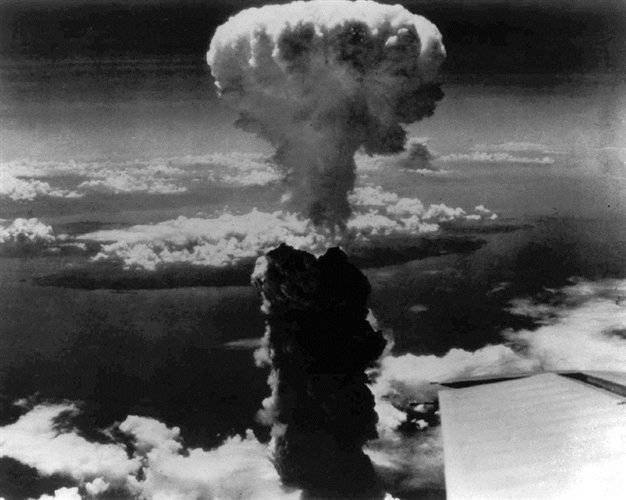
To the question “What caused the surrender of Japan?” There are two popular answers. Option A - the atomic bombardment of Hiroshima and Nagasaki. Option B - Manchurian operation of the Red Army.
Then begins the discussion: what turned out to be more important - dropped atomic bombs or the defeat of the Kwantung Army.
Both proposed options are wrong: neither the atomic bombings, nor the defeat of the Kwantung Army were decisive - these were only the final chords of the Second World War.
A more balanced answer suggests that the fate of Japan was determined by four years of hostilities in the Pacific. Strange as it may seem, this answer is also a double bottom. For amphibious operations on tropical islands, the actions of airplanes and submarines, hot artillery duels and torpedo attacks of surface ships hides a simple and obvious conclusion:
The war in the Pacific was planned by the United States, initiated by the United States, and conducted in the interests of the United States.
The fate of Japan was predetermined in the early spring of the 1941 of the year - as soon as the Japanese leadership succumbed to American provocations and began seriously discussing plans for preparing for the coming war. For a war in which Japan had no chance of winning.
The Roosevelt administration calculated everything in advance.
The inhabitants of the White House knew very well that the industrial potential and resource base of the United States far exceeded that of the Japanese Empire, and in the field of scientific and technological progress, the United States was at least a decade ahead of its future adversary. The war with Japan will bring huge benefits to the United States - if successful (the probability of which was 100%), the United States will crush its only rival in the Asia-Pacific region and become absolute hegemons in the vastness of the Pacific Ocean. The risk of the enterprise was reduced to zero - the continental United States was completely invulnerable to the Imperial Army and fleet.
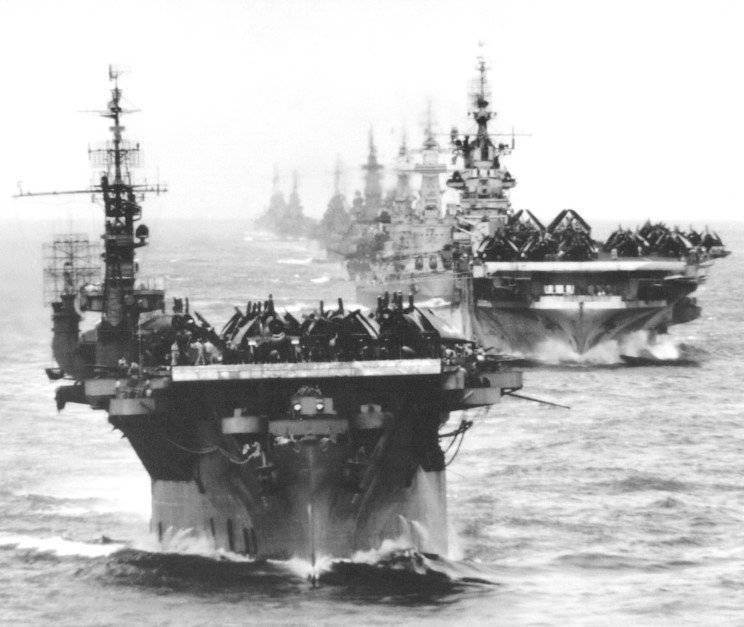
The main thing is to make the Japs play by the American rules and get involved in a deliberately losing game. America has no need to start first - it should be a “people's war, holy war” in which good Yankees smash an evil and despicable enemy who has risked attacking America.
Fortunately for the Yankees, the Tokyo government and the General Staff were too arrogant and arrogant: the dope of easy victories in China and Indochina caused an unjustified feeling of euphoria and the illusion of their own strength.
Japan successfully spoiled relations with the US - Back in December 1937, the Imperial Air Force planes sank the American cannon “Panay” on the Yangtze River. Confident in her own power, Japan did not seek a compromise and defiantly went to the conflict. War was inevitable.
The Americans were speeding up the process, teasing the enemy with deliberately impractical diplomatic notes and stifling economic sanctions, forcing Japan to make the only solution that seemed acceptable to her - to go to war with the United States.
Roosevelt did his best and achieved his goal.
"... how can we make Japan make the first shot without exposing ourselves to considerable danger"
- entry in the diary of US Secretary of War Henry Stimson from 25.11.1941, dedicated to a conversation with Roosevelt regarding the expected Japanese attack
Yes, it all started with pearl harbor.
Whether that was the “ritual sacrifice” of American foreign policy, or were the Yankees the victims of their own carelessness — we can only speculate. At least, the events of the subsequent months of the war 6 clearly indicate that Pearl Harbor could have happened without any interference of the “dark forces” - the American army and navy at the beginning of the war demonstrated their complete incapacity.
Nevertheless, the “Great Defeat at Pearl Harbor” is an artificially bloated myth with the aim of causing a wave of popular anger and creating an image of a “formidable enemy” to rally the American nation. In fact, the losses were minimal.
Japanese pilots managed to sink the 5 of ancient battleships (from 17, existing at the time as part of the US Navy), three of which were able to return to service in the period from 1942 to 1944.
In total, as a result of the raid, various injuries received 18 from the 90 ships of the United States Navy, anchored that day at Pearl Harbor. The irretrievable losses among the personnel amounted to 2402 man - less than the number of victims of the 11.09.2001 terrorist attack. The infrastructure of the base remained intact. - Everything is according to the American plan.
Often there is a statement that the main failure of the Japanese is due to the absence of American aircraft carriers in the base. Alas, even if the Japanese succeeded in burning the Enterprise and Lexington, along with the entire naval base Pearl Harbor, the outcome of the war would remain the same.
As time has shown, America could DAILY launch two or three warships of the main classes (aircraft carriers, cruisers, destroyers and submarines - minesweepers, hunters and torpedo boats) into the water.
Roosevelt knew about it. Japanese - no. Desperate attempts by Admiral Yamamoto to convince the Japanese leadership that the existing American fleet - just the tip of the iceberg and an attempt to solve the problem by military means would lead to a catastrophe, did not lead to anything.
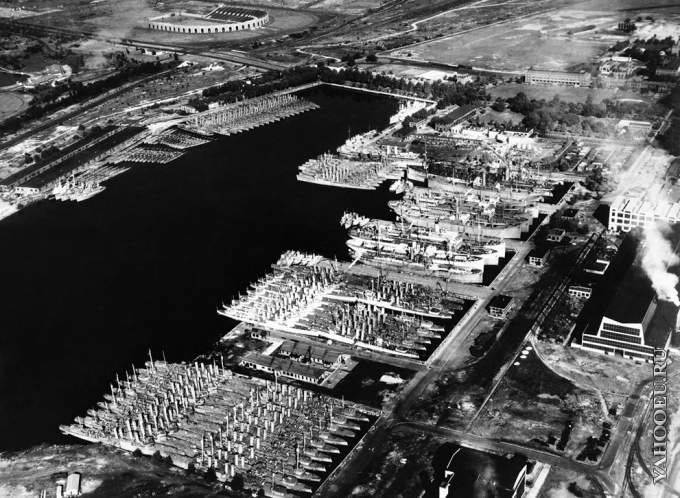
The capabilities of the American industry made it possible to instantly compensate ANY losses, and the growing, by leaps and bounds, the US Armed Forces literally “crushed” the Japanese Empire as a powerful steamroller.
The turning point in the war in the Pacific came at the end of 1942 - the beginning of 1943: entrenched in the Solomon Islands, the Americans had gained enough strength and began to destroy the Japanese defensive perimeter with all their fury.
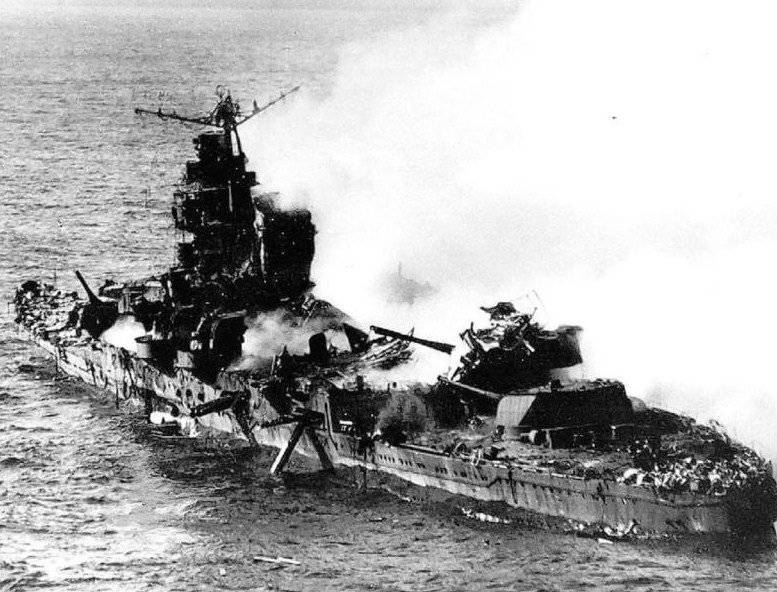
Everything happened as expected by the American leadership.
Further events are pure "beatings of babies" - in conditions of absolute domination of the enemy at sea and in the air, the ships of the Japanese fleet died en masse, not even having time to approach the American fleet.
After a multi-day assault on Japanese positions using aviation and naval artillery, on many tropical islands there was not a single whole tree left - the Yankees literally washed the enemy into powder.
Post-war research will show that the ratio of casualties to the personnel of the US and Japanese armed forces is described by the proportion 1: 9! By August 1945, Japan will lose 1,9 a million of its sons, the most experienced fighters and commanders will die, Admiral Yoroku Yamamoto, the most sensible Japanese commanders, will “get out of the game” (killed as a result of a special operation by the US Air Force in 1943, a rare event in storieswhen the killers are sent to the military leader).
In the fall of 1944, the Yankees threw the Japanese from the Philippines, leaving Japan with almost no oil, and the last combat-ready units of the Imperial Navy were crushed along the way - from that moment even the most desperate optimists from the Japanese General Staff lost faith in any favorable outcome of the war. Ahead loomed the prospect of landing the American troops on the sacred Japanese land, with the subsequent destruction of the country of the Rising Sun, as an independent state.
By the spring of 1945, from the once formidable Imperial fleet, only the burnt ruins of cruisers remained, who managed to avoid death in the open sea, and now were slowly dying from wounds in the naval base of Kure. The Americans and their allies almost completely exterminated the Japanese merchant fleet, landing insular Japan on an “empty ration”. Due to the lack of raw materials and fuel, the Japanese industry has almost ceased to exist. One by one, the major cities of Tokyo’s agglomeration turned into ashes — the massive raids of B-29 bombers became a nightmare for residents of the cities of Tokyo, Osaka, Nagoya, Kobe.
On the night of 9 on 10 in March of 1945, the most destructive raid in history using conventional weapons took place: three hundred “Super Fortresses” brought tons of incendiary bombs on 1700 to Tokyo. It was destroyed and burned over 40 square. kilometers of the city, more than 100 000 people died in the fire. Stopped factories out
Tokyo experienced a massive exodus of the population.
- Admiral Yamamoto prophecy, 1939 year
In the summer of 1945, aircraft carrier raids began and massed shelling of the coast of Japan by battleships and cruisers of the US Navy - the Yankees finished off the last centers of resistance, crashed airfields, and “shook up” the naval forces Kuren, finally finishing what the sailors did not manage to finish off in the open sea .
In this form, Japan appears in the form of August 1945 of the year.
Kwangtung mayhem
There is an opinion that the 4 warrior Yankees fought with Japan, and the Red Army defeated the Japs in two weeks.
In this, at first glance, absurd statement is plainly intertwined, and truth, and fiction.
Indeed, the Manchurian operation of the Red Army is a masterpiece of military art: the classic blitzkrieg in an area equal in area to two Zap. Europe!
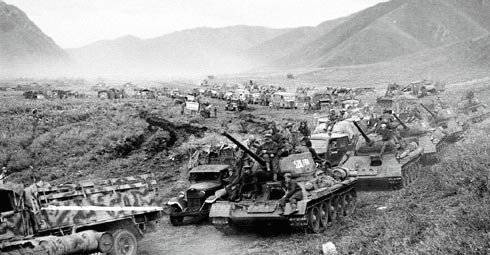
The breakthroughs of motorized columns through the mountains, daring landings on enemy airfields and the monstrous boilers in which our grandfathers “cooked” the Kwantung Army alive in less than a week's 1,5.
The South Sakhalin and Kuril operations were no less cool. It took our paratroopers five days to take Shumshi Island - by comparison, the Yankees stormed Iwo Jima for more than a month!
However, for each of the miracles there is a logical explanation. One simple fact speaks of what the “formidable” 850-thousandth Kwantung Army in the summer of 1945 represented: Japanese aircraft, for a combination of many reasons (lack of fuel and experienced pilots, outdated hardware, etc.), did not even try to rise in the air - the offensive of the Red Army was carried out with the absolute domination of Soviet aviation in the air.
- "History of the Great Patriotic War" (t. 5, p. 548 — 549)
Not surprisingly, the Red Army 1945 model of the year simply did not notice the presence of such a strange enemy. Irretrievable losses in the operation amounted to "only" 12 thousand people. (of which half carried away diseases and accidents). For comparison: during the storming of Berlin, the Red Army lost up to 15 thousand people. in one day.
A similar situation developed in the Kuril Islands and South Sakhalin - by that time the Japanese did not even have destroyers left, the offensive took place with complete domination of the sea and in the air, and the fortifications on the Kuril Islands were not very similar to what the Yankees faced on Tarawa and Iwo Jima.
The Soviet offensive finally put Japan in a dead end - even the ghostly hope of continuing the war disappeared. Further chronology of events is as follows:
- 9 August 1945, 00: 00 Transbaikalian time - the Soviet military machine was activated, the Manchurian operation began.
- 9 August, later morning - Nagasaki nuclear bombing took place
- 10 August - Japan has officially declared its readiness to accept the Potsdam terms of surrender with the reservation to preserve the structure of imperial power in the country.
- 11 August - The US rejected the Japanese amendment, insisting on the formula of the Potsdam Conference.
- 14 August - Japan officially accepted the terms of unconditional surrender.
- 2 September - The Surrender Act of Japan was signed aboard the battleship USS Missuori in Tokyo Bay.
Obviously, the first nuclear bombing of Hiroshima (August 6) could not change the decision of the Japanese leadership to continue senseless resistance. The Japanese simply did not have time to realize the destructive power of the atomic bomb, with regard to severe destruction and civilian casualties - an example of the March bombing of Tokyo proves that no less victims and destruction had any effect on the determination of the Japanese leadership to "stand up to the last." The bombardment of Hiroshima can be viewed as a military event with the aim of destroying the strategically important object of the enemy, or as an act of intimidation towards the Soviet Union. But not as a key factor in Japan’s surrender.
With regard to the ethical point of application of nuclear weapons - bitterness in the years of the Second World War reached such proportions that anyone who had such a weapon - Hitler, Churchill or Stalin, without batting an eye, would give the order to use it. Alas, at that time only the USA had nuclear bombs - America incinerated two Japanese cities, and now, 70 has been justified for its actions for years.
The most difficult question lies in the 9 events - 14 August 1945 of the year - what became the "cornerstone" in the war, which finally made Japan change its mind and accept the humiliating conditions of surrender? Repetition of the nuclear nightmare or loss of last hope, associated with the possibility of a separate peace with the USSR?
I am afraid that we will never know the exact answer about what happened in those days in the minds of the Japanese leadership.
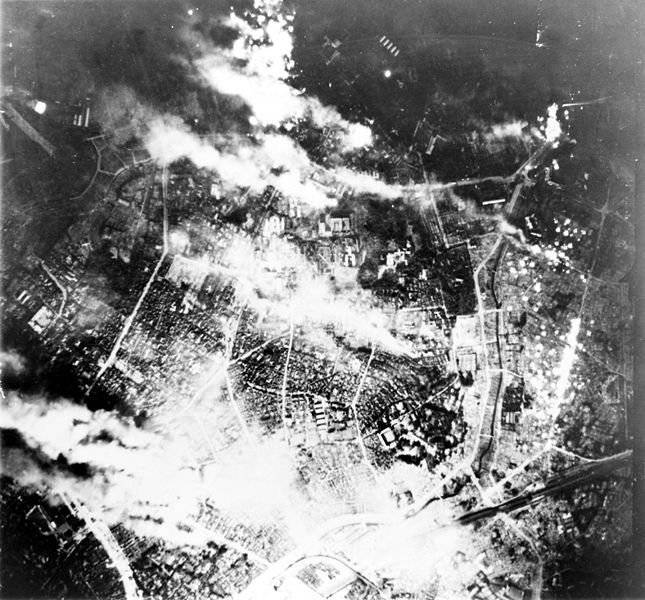
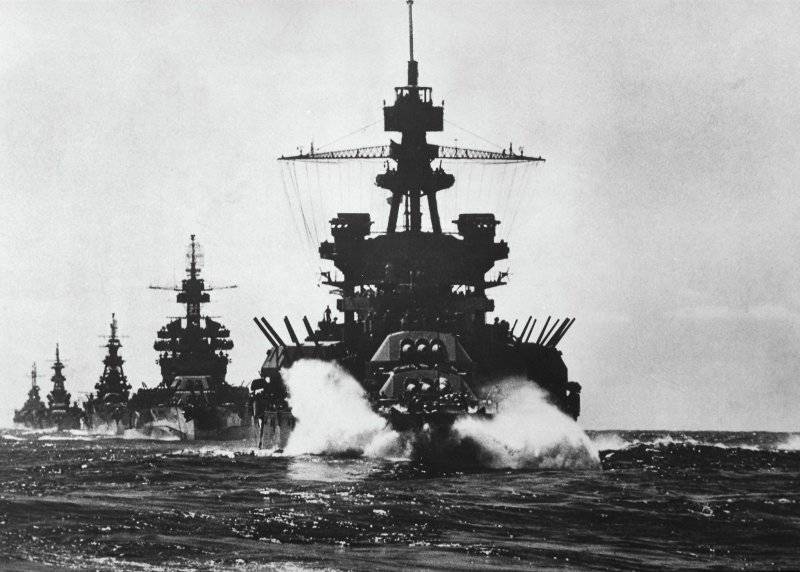
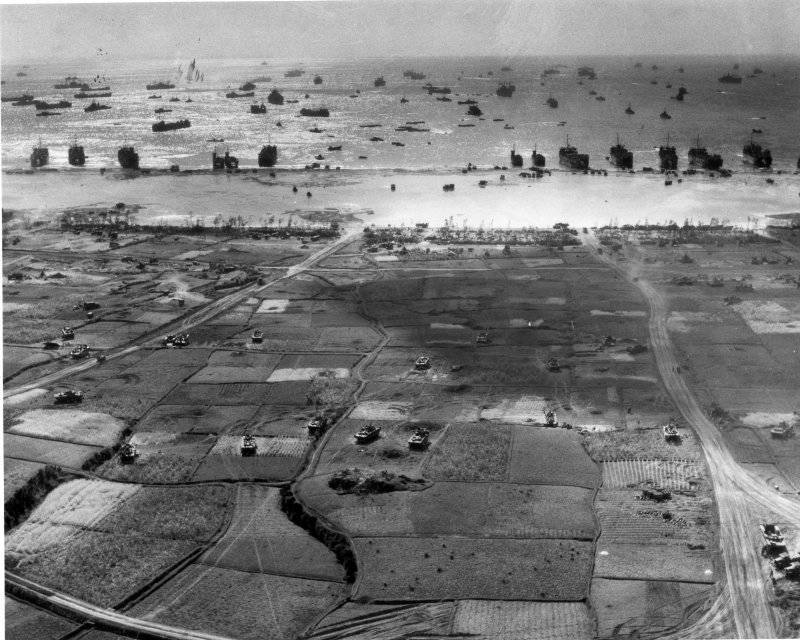
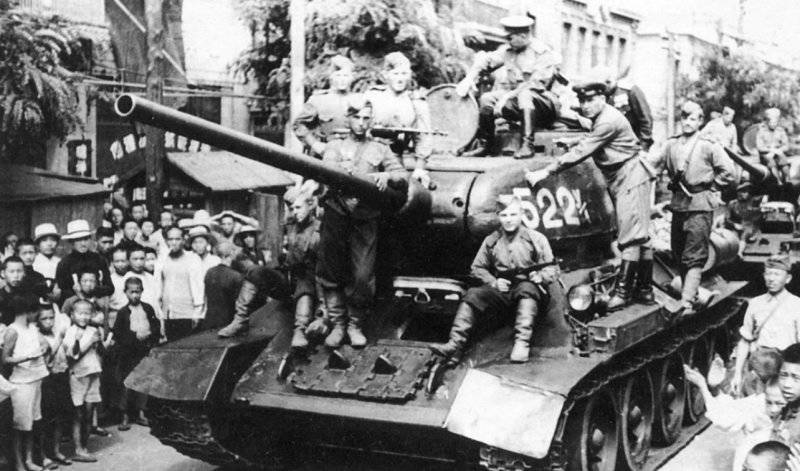
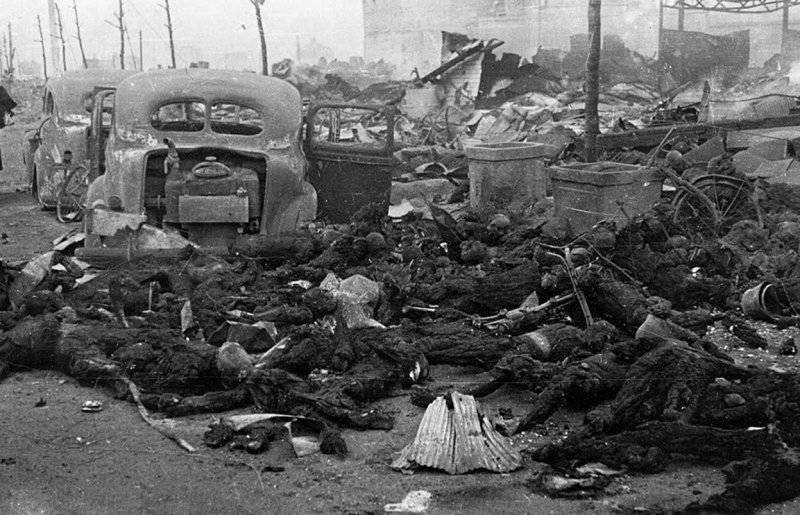
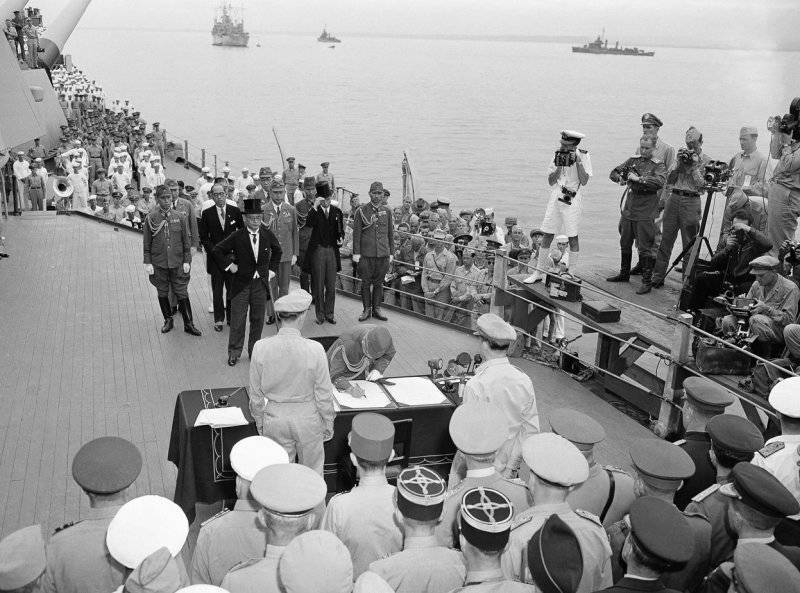
Information